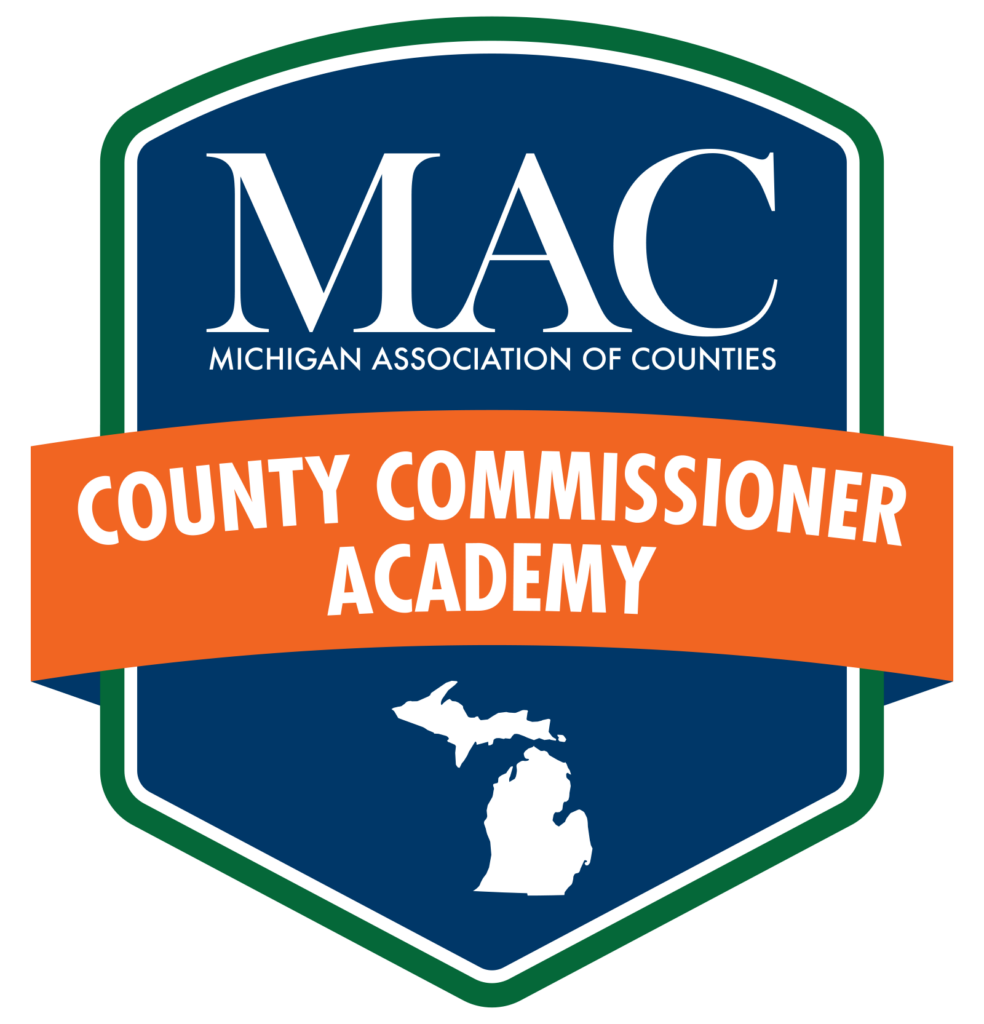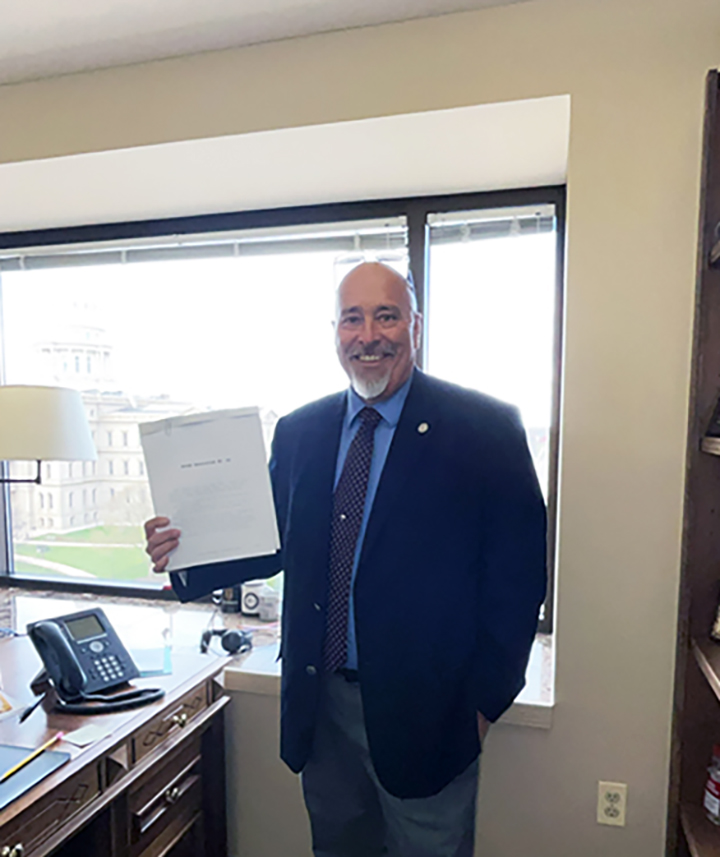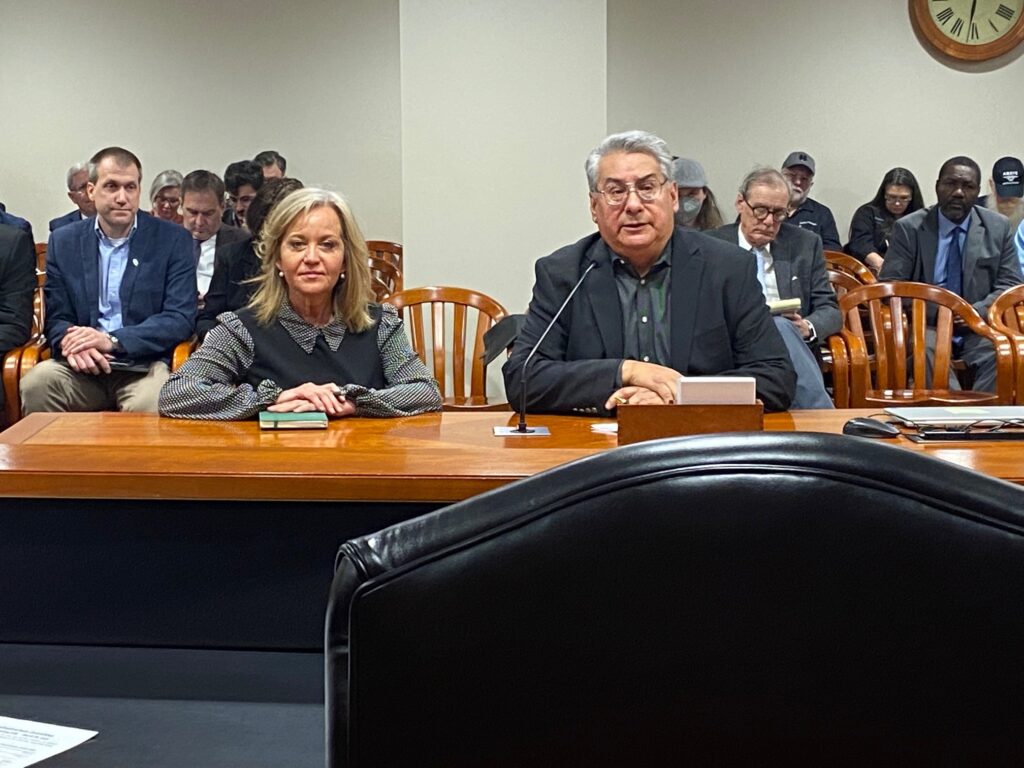A webinar offered on June 23 from 12 p.m. to 1 p.m. will provide commissioners a full credit toward their 2025 certificate in MAC’s County Commissioner Academy. Click here to […]


A webinar offered on June 23 from 12 p.m. to 1 p.m. will provide commissioners a full credit toward their 2025 certificate in MAC’s County Commissioner Academy. Click here to […]

Senate spending panel backs 10 percent boost to revenue sharing Michigan counties would see a 10 percent increase in revenue sharing in the fiscal 2026 state budget under a version […]

Public safety fund advances out of House In a powerful show of bipartisan cooperation, the Michigan House of Representatives this week passed House Bills 4260–61, legislation that establishes a long-awaited […]

A legislative resolution sponsored by MAC was among activities in April to mark National County Government Month. Rep. Steve Frisbie, a former Calhoun County commissioner now serving his first term […]

MAC testifies for public safety fund bills; House committee advances them Legislation to create a Public Safety Trust Fund advanced from the House Committee on Government Operations on Thursday after […]

Deadline extended on Opioid Settlement Funds Survey The second annual opioid settlement county reporting survey will remain open until April 21. MAC, in partnership with Public Sector Consultants (PSC), is […]

Legislative Conference begins Monday in Lansing More than 300 county and business leaders will gather in Lansing April 7-9 to hear from state leaders and policymakers at the 2025 Michigan […]

National County Government Month (NCGM), held each April, is an annual celebration of county government. Since 1991, the National Association of Counties (NACo) has encouraged counties to actively promote county […]

In Lansing, dollars are up for roads, down for veterans In this week’s episode, MAC’s Podcast 83 discusses the progress of a House GOP roads plan that is a “huge […]

House approves $3.1 billion road plan backed by MAC The Michigan House sent a comprehensive road funding plan to the Senate this week. The plan, which MAC testified in favor […]